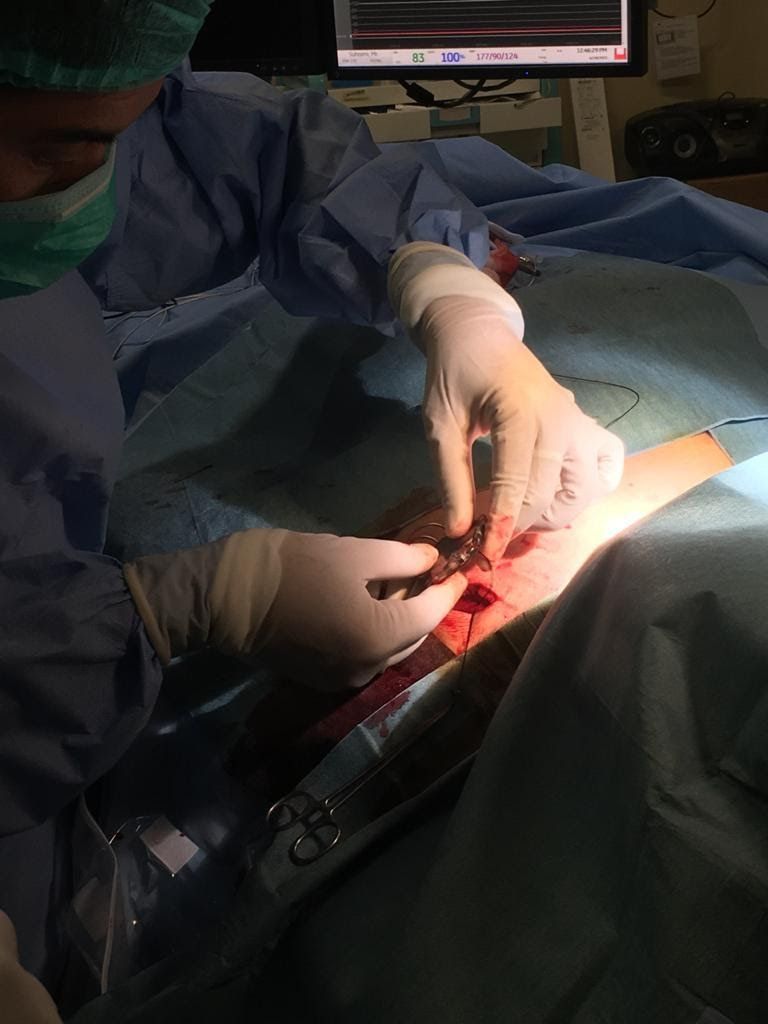Did you know, under normal circumstances our heart beats about 60-100 times every minute? That is, in a period of 24 hours, the heart beats about 100,000 times. However, what if your heart rate is often irregular? Abnormalities of heart rhythm or rate are called arrhythmias which are generally accompanied by a number of symptoms such as palpitations, shortness of breath, chest pain, dizziness and fainting. So, can arrhythmias be cured?
“In general, arrhythmias can be cured if handled properly. However, there are not many cardiologists who are also arrhythmia consultants. In fact, there are only around 30-40 doctors throughout Indonesia. At Eka Hospital, we have 4 cardiologists who are also cardiologists. arrhythmia consultant. In addition, we also have a pacemaker installation facility for patients with complaints of a weak heart rate, as well as programming facilities for patients after heart device installation, “said Chief Operating Officer (COO) of Eka Hospital, drg. Rina Setiawati in a written statement, Thursday (16/9/2021).
Meanwhile, Cardiologist and Blood Vessel Specialist, DR. Dr. M. Yamin, Sp.JP(K), FACC, FSCAI added that arrhythmia can be interpreted in two conditions. First, tachycardia, namely the heart rate is too fast, more than 100 beats per minute in adults at rest. And bradycardia, a condition where the heart rate is too slow, below 60 beats per minute in adulthood.
Tachycardia is usually diagnosed with an electrocardiogram (ECG) to measure and record the electrical activity of the heart. For a longer examination, you can use a holter or an implantable loop recorder to detect heart rhythm disturbances. On the other hand, the heart rate will slow down (bradycardia) with age due to a decrease in the quality of the generators and electrical lines in the heart. This can make the heart rate slow to below 60 beats per minute.
|
Photo: Eka Hospital– |
“This slowdown makes the heart unable to pump blood to various vital organs in the body and results in health such as frequent dizziness, fatigue, and fainting. Severe complaints can include chest pain, shortness of breath, to stroke,” said the doctor who practices at Eka Hospital BSD. the Tangerang.
To overcome this, the patient requires a permanent pacemaker (permanent pacemaker) consisting of a generator (implanted under the skin of the chest wall) and leads or cables (conducting electricity from the generator to the heart), which helps the patient’s heart to beat normally again. The pacemaker installation process is carried out in the cardiac catheterization room with the help of a fluoroscope to confirm the placement location. This procedure is a minimal incision method and is performed under local anesthesia in the right or left chest wall area.
Not only installation, Eka Hospita provides post-pacemaker care such as battery checks, pacemaker repositioning and cable installation with options from pacemaker providers such as Medtronic, Biotronic, and St Jude.
 Photo: Eka Hospital– Photo: Eka Hospital– |
In addition, Eka Hospital provides a fast arrhythmia treatment center with cardiac electrical examination facilities and catheter ablation procedures. Eka Hospital has performed more than 100 cardiac ablation procedures annually, and will have Cryo Ablation AF technology in 2022. Through this technology, the duration of the ablation procedure can be shortened to 1-2 hours. While radiofrequency action takes longer, which is 4-5 hours. The cost of installing a pacemaker at Eka Hospital starts from IDR 120 million, while cardiac ablation costs range from IDR 108 million to 180 million.
Currently, the Eka Hospital Heart Arrhythmia Center is supported by 4 professional doctors, namely:
- DR. Dr. M. Yamin, Sp.JP (K), FACC, FSCAI
- Dr. Ignatius Yansen Ng, Sp.JP (K), FIHA
- Dr. Daniel Tanubudi, Sp.JP, (K)
- Dr. Haryadi, Sp.JP (K), FIHA
(Content Promotion/Eka Hospital)
– .

![out Zielinski and Zanoli, Malcuit and Elmas on the field from 1 ‘ [FOTO] out Zielinski and Zanoli, Malcuit and Elmas on the field from 1 ‘ [FOTO]](http://resource.calcionapoli24.it/www/thumbs/643x350/1631791218_383.jpg)